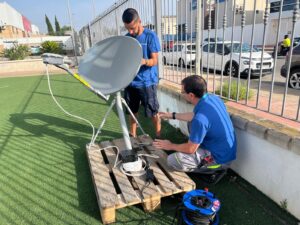In a surprising turn of events, a series of lawsuits by alleged “patent trolls” has led to criminal implications, shaking the foundations of the patent system in the United States. Three anonymous companies, Mellaconic IP, Backertop Licensing, and Nimitz Technologies, became the focus of attention after filing multiple lawsuits in the federal court of Delaware in 2022. These lawsuits accused various companies of all sizes of infringing patents, including one particularly controversial one regarding hiring through mobile applications.
The judge in charge of the case, Colm Connolly, launched a thorough investigation upon noticing unusual behaviors in the handling of patents and their ownership. He discovered that the true owners of these patents were nothing more than fronts, including a food truck operator hoping to earn “passive income,” and the spouse of an IP Edge lawyer, the company involved in these patent litigations.
Judge Connolly’s investigation revealed that the associated lawyers had violated professional ethical standards, suggesting even that the truck operator may have been misled about his responsibility in the case. IP Edge, according to the judge, was the true “de facto” owner of the patents, but attempted to conceal their involvement. This revelation led Connolly to refer three IP Edge lawyers to the Unauthorized Practice Committee of the Texas Supreme Court and to recommend a deeper investigation by the Department of Justice into the activities of the entities involved.
Despite the lawyers’ attempts to challenge Judge Connolly’s authority, patent reform organizations supported the investigation, emphasizing the importance of transparency in federal courts. The appeals court ruled in favor of continuing the investigation, resulting in the lawyers being referred to relevant disciplinary agencies.
A particular case involving Nimitz Technologies showed how international complexities also come into play. Mark Hall, the alleged owner of a disputed patent, was unable to explain its acquisition. The patent originally came from Nokia and was sold to a French sovereign investment fund, France Brevets, which used American lawyers to litigate against local companies.
These events highlight the urgent need to ensure transparency in patent litigation, protecting the innovation system from being exploited by entities whose real motivation is not technological advancement, but profit through legal manipulation. Judicial intervention aims to safeguard justice and promote clear rules on funding and true ownership in litigated patent cases.
via: MiMub in Spanish









